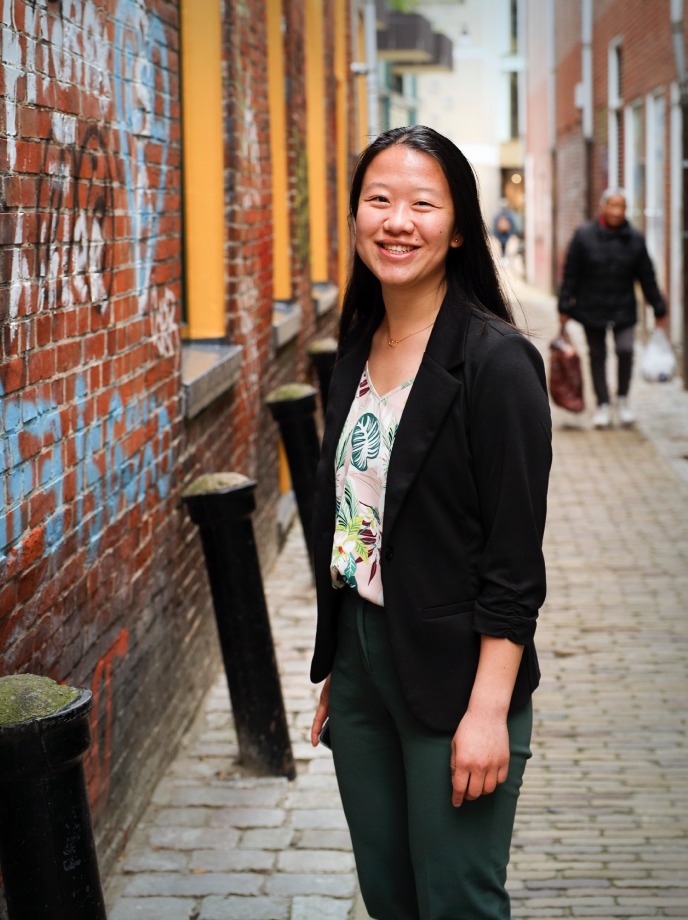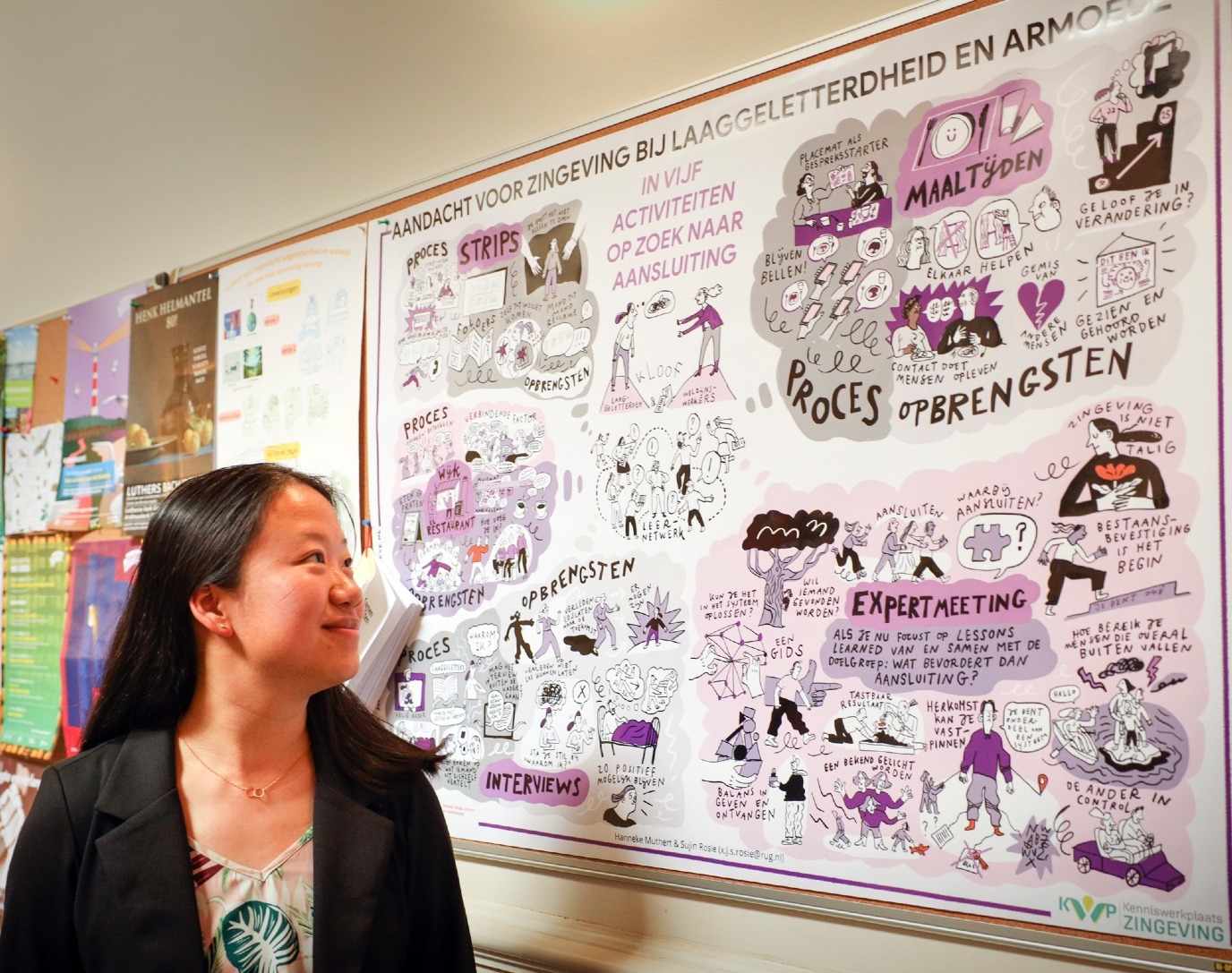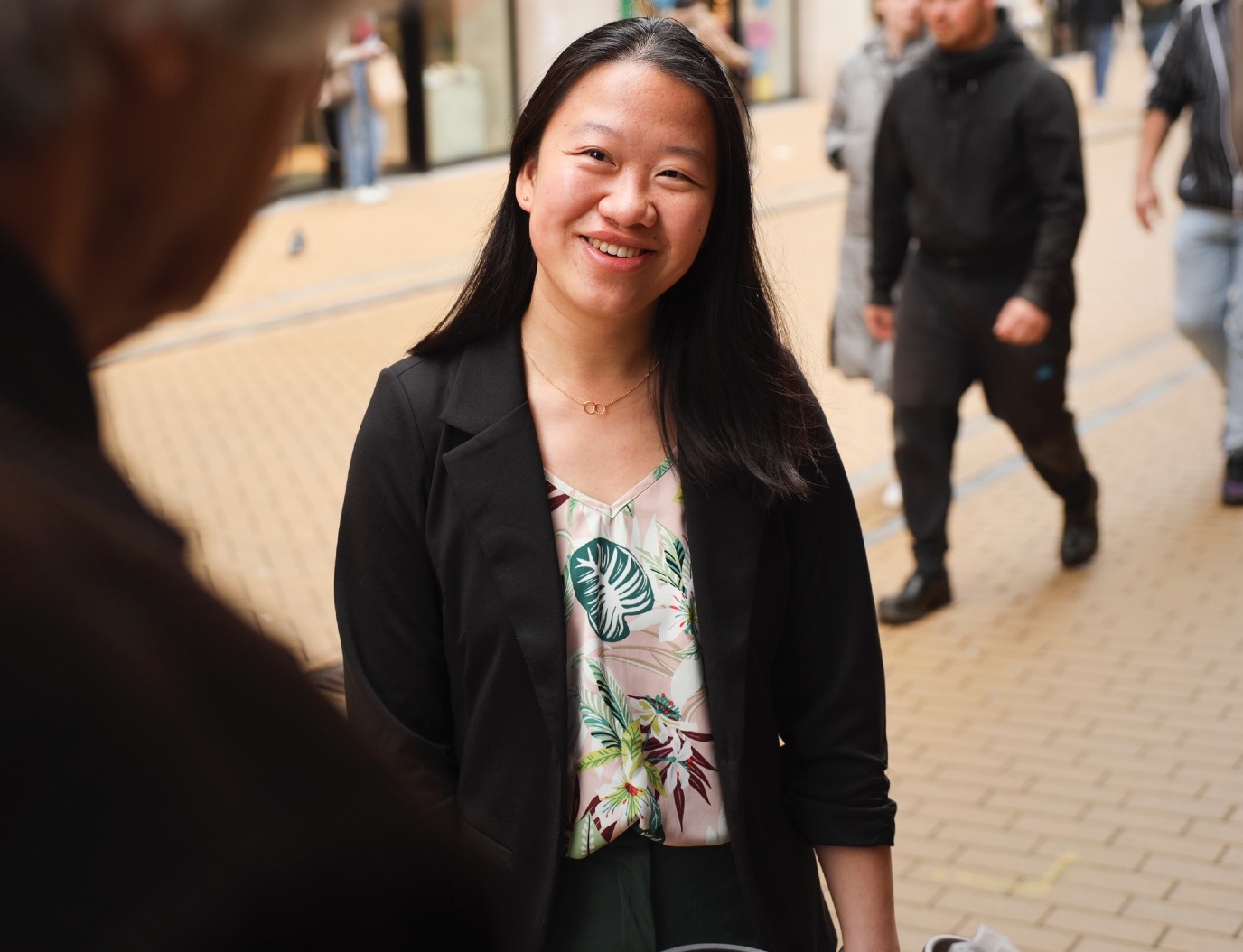Sense of purpose in people affected by low literacy and poverty

Anyone who takes to the streets at the crack of dawn may have already spotted it: the Salvation Army’s ontbijtfiets (breakfast bike) in Groningen. From around seven o’clock, a social worker and a volunteer cycle through the city to reach out to rough sleepers, bringing them coffee, tea, and sandwiches. Sujin Rosie, PhD student at the Faculty of Religion, Culture and Society at the University of Groningen, cycles along to help and observe: what actually happens during these encounters, and how do people on the street and those on the ontbijtfiets connect with each other?
Text: Sujin Rosie / Photos: Henk Veenstra
On my first morning, we meet a young man who is already waiting for us in a doorway. He wants coffee, no sandwiches, and is up for a chat. We ask him a few questions — are you sure you don’t want a sandwich, and do you know of any other places where we might find unhoused people? Much to my surprise, he asks us a question too: how are you doing? I instantly fall silent. Should I just say: ‘I’m fine?’ Perhaps that’s a bit awkward to say to someone who’s shivering from the cold. Or maybe I should tell him that I’d rather still be in bed at this early hour? But that’s not really appropriate either. I settle on: ‘Fine, it's a bit early.’ The social worker responds more quickly and in greater detail about the ontbijtfiets schedule — explaining that it will be available next week and then unavailable for a while — and inquires again about other locations where people might be sleeping rough. Then we cycle on.
During this encounter, we certainly established contact, but did we manage to establish a connection when it comes to the sense of purpose? Perhaps the coffee fulfilled a material need, and that is where we found common ground. In terms of language, it was a bit of a struggle and the young man’s genuine interest was unanswered

Common ground when it comes to the sense of purpose
We have known for some time that finding common ground when it comes to the sense of purpose is not always easy. Spiritual care providers are trained to provide guidance, advice, support, training, and tools in relation to purpose and life philosophy. They work in a variety of contexts, including in people’s homes. Since 2019, spiritual care has been subsidized for people over the age of 50 or those suffering from a terminal illness. The scheme simply assumes that clients and spiritual carers will find ways to connect with each other. However, in practice, this is often not the case.
We know, for example, that people living in poverty or affected by low literacy often remain invisible. This is despite the fact that more than 2.5 million people in the Netherlands have difficulty with reading, writing, arithmetic, and digital skills, which also affects their sense of purpose. It is therefore important to pay attention to providing a sense of purpose, perhaps with the help of a spiritual carer or by a professional who has already been in contact with these people for some time. Such professionals can then receive additional training from spiritual carers where necessary, but spiritual carers themselves must also take a more active approach to tailoring their services to the needs of the target group.
In search of connections with people affected by low literacy and poverty
In an earlier study, Hanneke Muthert and I spent two years working with experts and practice professionals to find out what is needed to connect with each other when it comes to a sense of purpose. Through exchanges in meetings and activities, we learned about effective connections when it comes to providing a sense of purpose for people affected by low literacy and poverty. We shared our findings in various contexts; see this web page. In our Lessons Learned, we concluded that spiritual care providers should reach out to the target group instead of waiting for people to come to them (Muthert & Rosie, 2024). Also, activities should be organized with, rather than for, the target group. Another important finding is that not everyone wants to talk: language is not always necessary to satisfy the need for purpose; sometimes, the need for purpose is very concrete or material.

Follow-up
We already know a great deal about how to connect with a target group that was previously out of sight, and what it takes to do that. Social workers are more accustomed to going out and meeting people where they are. The ontbijtfiets is a good example of this. Could this also be linked to providing a sense of purpose?
In the next ten weeks, I will be cycling around delivering breakfast and visiting day care centres to experience the connection — or lack thereof — and how it is linked to the sense of purpose. What will I see happening during the interactions, what will I hear, smell, feel, and, maybe even taste? After all, when I prepared those sandwiches, I might have been sleepy, but I did put a lot of love into them. Maybe that would have been a good reply.
More information
More news
-
06 January 2026
Connecting with history
